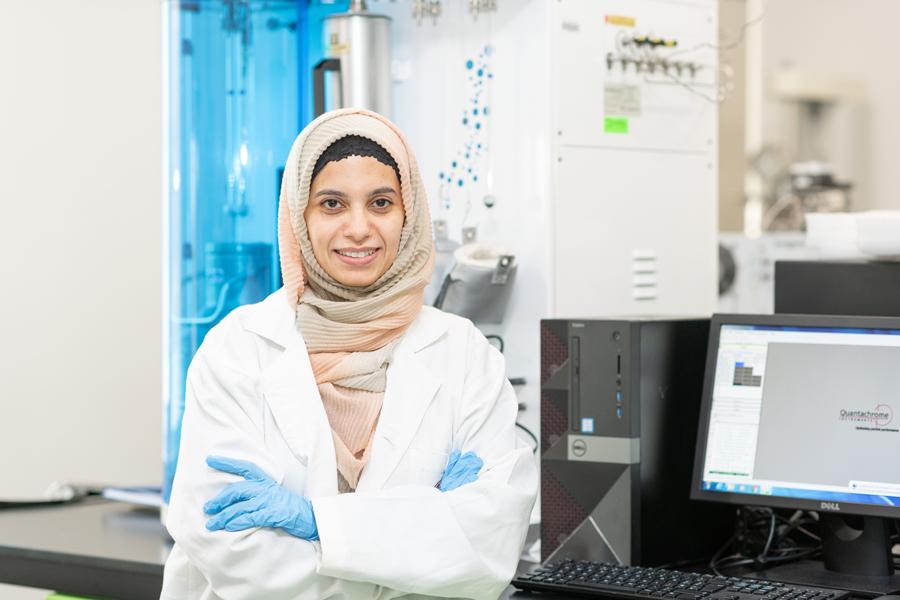- About
- Admissions
- Study at AUS
- Prospective Students
- Bachelor's Degrees
- Master's Degrees
- Doctoral Degrees
- Admission Publications
- International Students
- Contact Admissions
- Grants and Scholarships
- Sponsorship Liaison Services
- Testing Center
- New Student Guide
- File Completion
- New Student Orientation
- Payment Guide
- Executive Education
- Students with Disabilities
- Academics
- Life at AUS
- Research
- Contact Us
- Apply Now
- .

AUS student sustainability research advancing energy solutions
With the mantra “a greener today for a cleaner tomorrow,” American University of Sharjah (AUS) PhD student Anum Iqbal has dedicated her research to providing solutions for more sustainable living, earning her a scholarship for a four and a half-month research student attachment program at the Applied Physics Department of Hong Kong Polytechnic University (PolyU) to pursue research on energy conversion and storage.
Having graduated with a Master of Science in Physics in Nanoscale from International Islamic University in Pakistan, where she researched synthesizing nanomaterials for waste-water treatment, Iqbal is now continuing her research in the realm of sustainability in the AUS PhD in Materials Science and Engineering (MSE) program in close collaboration with her advisor Dr. Nasser Hamdan, Professor in Physics. Her work is now focused on finding energy solutions, which also align with the recent COP28 resolutions to accelerate efforts towards net zero emissions energy systems.
“The research focuses on the development of MXenes, which are two-dimensional nanomaterials that we can use to manufacture advanced battery systems to store and convert energy. We've already developed special combinations of these nanomaterials in the Materials Science and Engineering Lab at the College of Arts and Sciences (CAS), and we want to carry out an in-depth study of their energy storing features at PolyU. This research will be conducted through a collaboration between AUS and PolyU,” said Iqbal.
She added: “As we move away from fossil fuel-based technology into a clean energy economy, the major challenge for scientists is to develop highly efficient materials for energy harvesting and storing. Energy storing and conversion are important to ensure constant renewable energy supply. As a PhD student in material science, my utmost desire is to generate work that serves societal needs. That’s why, upon completing this degree, the intention is to expand this research to an industrial scale for the benefit of consumers.”
Iqbal noted the strong support she received from CAS and Dr. Hamdan in completing all required documentation for the research scholarship. She also explained that by joining the PhD-MSE program at AUS, she found a supportive hands-on environment that made her “confident enough to work with world-leading scientists on battery technologies.”
The PhD-MSE program is delivered by CAS in collaboration with the College of Engineering and the College of Architecture, Art and Design, and focuses on four multidisciplinary research areas, including advanced materials, materials for energy and environment, structures, and analytical and computational modeling and simulation.
To learn more, visit w.aus.edu/cas/phdmse.

